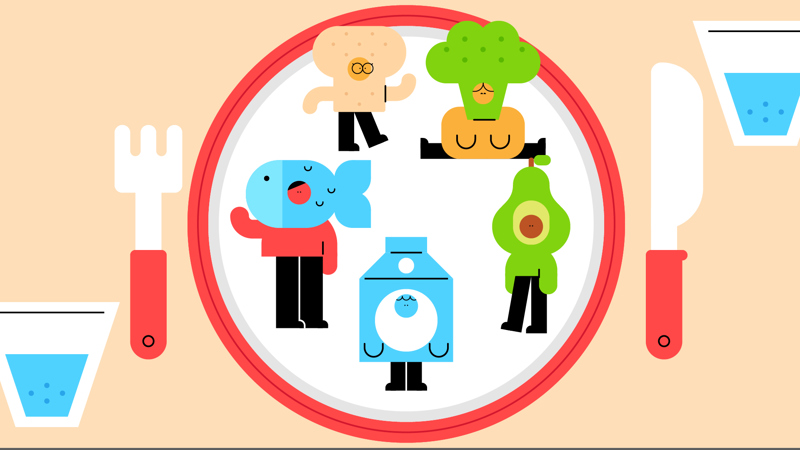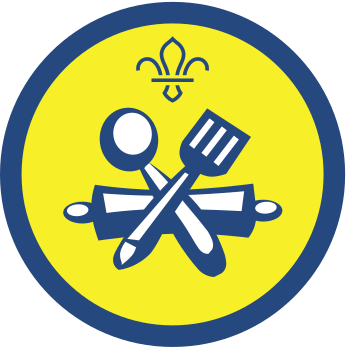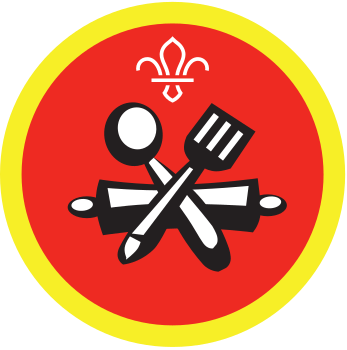
What’s for dinner?
Chat about balance
- The person leading the game should ask if anyone knows why it’s important to eat a balanced diet. It’s important because it keeps us healthy – our bodies need different things from different foods, so we should try to eat lots different things in different amounts.
- The person leading the game should explain that there are five main food groups: fruit and vegetables, carbohydrates, proteins, dairy and alternatives, and oils and spreads. It’s especially important that people eat enough fruits and vegetables and carbohydrates.
- Everyone should try and think of some examples of foods in each group and share their ideas.
Play the game
- Everyone should sit in a circle.
- The person leading the game should go around the circle and give people the name of a food group. There should be at least two people in each food group – it doesn’t matter if they’re not all used.
- Everyone should call out ‘What’s for dinner?’
- The person leading the game should call out the name of one of the food groups they gave people in step three.
- Anyone in that food group should stand up, and switch places with someone else in their group. Everyone should try and switch places.
- If the person leading the game calls out ‘Dinner’s ready!’, everyone should change places.
- Keep playing until everyone’s moved a few times. People could take it in turns to lead the game and call out food groups.
Reflection
This activity was a chance for everyone to think about having a balanced diet. Can anyone remember why it’s important to have a balanced diet? A balanced diet helps people get the nutrients and vitamins their bodies need to stay healthy and grow. All foods can belong in a balanced diet, and not every meal has to be perfectly balanced - it’s more important to have a balance over a day or even a week. Does anyone find that surprising? Some people can’t (or don’t) each certain foods, for example, because they’re allergic or because of their beliefs. Happily, there are plenty of alternatives and choices in each group.
Safety
All activities must be safely managed. You must complete a thorough risk assessment and take appropriate steps to reduce risk. Use the safety checklist to help you plan and risk assess your activity. Always get approval for the activity, and have suitable supervision and an InTouch process.
- Active games
The game area should be free of hazards. Explain the rules of the game clearly and have a clear way to communicate that the game must stop when needed. Take a look at our guidance on running active games safely.
If you want to make it trickier, you could call out items of food rather than the group. If you call out ‘pasta’, for example, all the people with the carbohydrate group should swap places.
You could also name people items of food instead of food group - they’ll have to remember what their food is, and which group it belongs too.
It’s up to you whether you sit on the floor or on chairs.
All Scout activities should be inclusive and accessible.
People can take it in turns to call out food groups - it doesn’t have to be an adult’s job!

